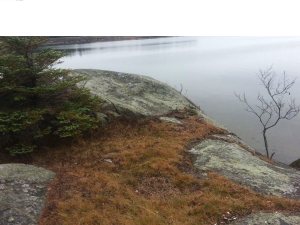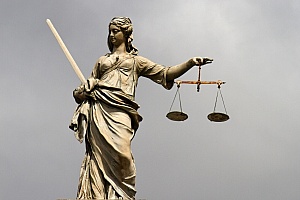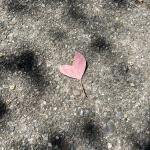The Maine coast and its adjacent islands result from the spectacular meeting of ancient granite, Pleistocene ice, and the wild waters of the North Atlantic. When the glaciers departed they left behind the most complex meeting of land, ocean, and sky in the US. Much of that glacier polished rock is now covered with dense forests of spruce accented by birch, their floors embraced within soft emerald green moss and grey lichen. These quiet woods then open out onto ice smoothed boulders and cliffs plunging into the ocean.
The ancient glaciers had pushed out well beyond the mainland’s present shores, scouring everything along their way. When they finally retreated the high points they had separated from the continent became Maine’s thousands of islands, usually adorned as well with spruce and birch woods and complex granite shores. This maze of picturesque islands and glacier-raked mainland is unlike anywhere else in the country.
In November I had flown out from California to Portland, Maine’s biggest city, and driven north to the small coastal town Camden to celebrate my birthday and that of my godson. Near the end of my stay we traveled further up the coast, to an isolated dock, where the island we had chosen to visit lay a few miles off the mainland. Our boat arrived, we piled in our belongings, and departed.
Maine’s more isolated islands are another world far removed from the hassles and worries of the mainland. Until cell phones existed there was not even phone service on this one, except for emergencies, when the care takers’ phone could be accessed. Even with them, none of us felt the need to call anyone. We had entered into another pace of life, one geared to human and natural rhythms rather than the never ending connections of technology.
Shaped somewhat like a battered ‘H,’ the island we had chosen was covered mostly with spruce forest and the occasional meadow, its coast a mix of sandy beach, mud flats, and spruce bedecked granite. A large meadow extended down to the wharf, and higher up on its slopes stood some very fine old homes. Behind them the island opened out onto unpaved roads, a network of trails, and another world.
The next morning we gathered for a hike. The day was overcast and damp, for a storm was approaching, although it would not hit until the evening. It being November, and hunting season, we donned lightweight plastic orange jackets over our heavier clothes.
Most everyone wanted to take an energetic hike to the island’s highest point. I wanted a more leisurely journey, to experience the island’s quiet presence alone, and take photographs unimpeded with the need to catch up with my friends. Shortly into our hike I explained I would proceed on my own. I knew the way back. No problem.
We parted, they to the island’s high point, me to wander leisurely through the woods and along the coastal cliffs.
Leaving our common trail, I took a smaller one skirting the coast, winding through a forest with moss covered floors and filigrees of bare birch branches outlined against the dark green of the spruce. Occasionally the trail would cross a small ravine or swampy patch, where a simple bridge of half-logs had been laid across two longer ones. On damp days like this one they were slippery, but far better than slogging through water. There was no wind and the sea was still, the island’s small bay almost as reflective as a quiet lake. An atmosphere of peace prevailed on the land, sea, and air. The deep. old, and calm energy of the place was palpable, and I paused frequently to take it in. The trail was easy, the vistas were beautiful, and I was busy taking pictures.
In time I came to a point of land where I could look across that small bay to the home we were staying at, the dock, and the island’s other buildings. This point emerged slowly from the forest, narrowing into a small tongue of flat bare granite that soon dropped to the water, perhaps twenty or thirty feet below.
I stepped out onto the rock to enjoy the vista. Much of the stone was smooth and flat, and only began dropping gently off to the cliff and water below several feet away from me. Below me the sea was at low tide, the water noodling quietly around and between some boulders. It was a great place to admire the view and take pictures.
But the stone was also moist…
Looking through my camera’s viewfinder trying to get the best composition for my photographs, and fiddling with the telephoto lens, I stopped paying attention to the rock and my footing. Suddenly I slipped and fell on my back, my camera hitting the rock before I did.
I was not to discover its damage for a while because I had a bigger problem.
I had fallen flat on my back, arms outstretched, and my head down towards the cliff and sea beneath. As I fell I had twisted to my right to protect my camera, so I did not fall backwards towards the body of the island. My back was no longer on the rock’s flat surface, but rather on the part that began sloping with increasing steepness down to the edge of the cliff. My feet were above my head.
Except for my pride, I was not hurt, and started to get to my feet.
As I shifted to rise, I slid downhill a little bit.
Along with the rock’s dampness, my flimsy orange plastic jacket was acting as a lubricant. If I lay still my weight was enough to keep from sliding, but any movement caused me to inch downwards. And unfortunately, the farther down I inched the steeper the incline and the further I would slide. At some point the slipperiness of the jacket would count for more than my weight and I would go over the edge. I stopped trying to get up. I stopped sliding.
I felt completely helpless. Worse, I felt completely helpless while entirely uninjured and lying on a surface on which I could easily have sat up and gotten to my feet had I not been wearing that jacket. Minus the cliff or the jacket there would be nothing remotely dangerous about my position. But there was the cliff and there was the jacket.
It was the strangest, most complete sense of helplessness I have ever felt. And it had come out of nowhere, turning my relaxed wandering along the coast into sheer terror.
No one knew where I was, or even for sure what direction I had gone. My friends would not pass by my way upon returning, whenever that would be. They would walk home and wait, imagining I was having a good time. In time they would start searching, but with little idea where to look. I had a cell phone with me, and they would doubtless call, but getting to the phone would probably provoke a fatal slide. And anyhow, I would likely not be able to lie there quietly until such a call came. Even a sneeze might be enough to start me sliding to my doom. And my sneezes are not small ones.
“Shit!” I said to no one in particular.
I tried again to position myself to get up.
I slid again. This time a little farther than before. I did not know how far away the point was where a slide would become unstoppable and I would go over head first, but I knew it was close.
“Don’t panic,” I told myself. I told this to myself repeatedly.
I lay quietly and ran my hands along the surface of the granite. There were no hand holds, nothing to grab. The glacier had done a good job. I discovered the rock to my left was slightly higher than on my right. It was also farther from the edge. If there was salvation, it lay in that direction.
At one place to my left I felt a small indentation where the rock dipped down just slightly. It was not a hand hold, or even close, simply an unevenness. But if I pressed my fingers against it as hard as I could I might provide just enough friction to enable me to lift enough weight off my jacket. Once the jacket had been neutralized I could get up easily, if I moved fast.
Holding my breath, I reached my left hand out, pushed my fingers down to get as much connection with the rock as I could, and pulled sharply to my left, twisting away from the rock and so from most of my jacket’s contact with it. I used that momentum to role to my side.
My fingers stayed pressed hard against the stone, and I did not slide.
Thank the Gods that I’d been working out! Core strength matters!
I wasn’t going to die after all.
I got to my feet, discovered the damage to my camera, and decided it didn’t matter at all.
I returned to the house and said nothing about my close call when my friends arrived two hours later. I was still processing what happened, and what had almost happened.
Back in California, lying on my back in bed, sometimes I try and return myself to those moments on that rock. The first time I did so I instantly panicked. And the second and the third. But slowly the intensity has faded as every few days I bring myself to that place, and seek to discharge the energy of that memory embedded within my body. But even now I still get chills.
I described this sensation to a friend and he said “That sounds like PTSD.” Curious, I took an online self-diagnosis test. I scored “likely.” But my case was far less serious than those for whom PTSD was life crippling. My ordeal happened alone, so in no way can other people trigger the fear. No violence had been deliberately directed my way. The worst of the feelings only arose when I chose to re-live the event. They did not intrude on my life outside of my control.
Like they do for many soldiers.
Compared to the horrors of war, which don’t last for minutes but for months, maybe years, and involve seeing friends being killed or others seeking to kill, what happened to me was nothing. But that brief ‘nothing’ left terrifying feelings embedded deeply within my body, feelings able to generate physical and emotional terror when I chose to remember them while on my back safely in bed. And even to some extent when I try and “go there” now, while writing these words. My shoulders still twitch. Maybe they always will.
How unimaginably worse must it be for those who have experienced the terrors and horrors of war, terrors and horrors embedded deeply within their body and their soul. As I learned, terrible injuries did not need to be physical or embedded in early childhood. In the proper context our mind alone can do it, even for adults.
I now have a far deeper sympathy and care for those men and women on all sides who find themselves in a war they did not choose and could not escape, as well as those who participated thinking they were serving some noble end. I understand as I never could before how the psychological wounds many survivors carry, whether called “battle fatigue,” “shell shock,” or now, PTSD, can be much deeper than the physical damage they survived. And can ruin a life. No wonder so many returning soldiers don’t talk about their experiences.
Until that Fall afternoon on that rock in Maine there was no way I could have even begun to understand. I could not have imagined what it was like having visceral terror embedded, even imprinted in my body, ready to emerge powerfully on its own with the proper signal.
Anyone supporting a war should realize, deeply realize, that the lives ruined will far outnumber those who suffered physical deaths and trauma. And those ruined lives will be on all sides, the ‘victors’ as well as losers. Physical wounds often heal. Healing those arising from where mind and body conjoin is harder, and because they are so often invisible to those on the outside, may not even be acknowledged.
Taking that spill on a rock in Maine deepened my care and compassion for those caught up in war, their souls wounded by it. In retrospect it was a blessing, but with the proverbial 2X4.

















